Can media help medicine? This article researches a significant topic, that is how media can affect the medical world. Critically acclaimed scholars have completed extensive research on this topic, and there are many supportive examples to shedding light on my claim. Society relies so heavily on medicine, but is some of this weight now being taken off these doctors shoulders and hoisted onto the internet. I am wanting to dig deeper and find out the true assistance of social media in relation with Health Care Professionals (HCPs) medical treatment. The history involving media and healthcare runs deep. After World War II, public health started to become more of a priority and along with this came the healthcare system. Soon enough a problem arises that involves keeping important records afloat and attainable. In 1972 the first digital medical record system was created. In a blink of an eye we are now in the 20th century that revolves around the use of media. Allowing society to possess medical information at home, and gives doctors the ability to communicate information with patients, and colleagues.
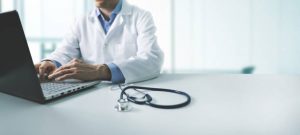
“Media provides HCPs with tools to share information, to debate health care policy and practice issues, to promote health behaviors, to engage with the public, and to educate and interact with patients, caregivers, students, and colleagues(Ventola 2014).” Throughout this article many points were made regarding how this is a helpful tool. Health care professionals turn to this outlet to enhance there practical knowledge and to put useful information on certain platforms for their colleagues and patients. Important networks used by healthcare professionals are SERMO which is a Latin meaning for communication, discussion and conversation, Doximity, and Daily Rounds. These networks are specifically used for community engagement and learning for professionals in the medical world.
One could say that the weight is lifted off some of the medical world in regards to communication, and the need for maximum growth when it comes to knowledge. Moreover this is a great use of media in the medical world and can be seen as utilizing every outlet. Being we are in the midst of a pandemic, media has shown to have some great attributes. Pandemics strain and pressure communication in support of medical practice, being that through media we can now access important information easier and faster. “There is a substantial literature on the ways in which media entities, including those from professional (TV, newspapers, and other established non user-generated platforms) and social (primarily user generated) sources, can both educate and communicate important information but also sow fear and misinformation(Carlo 2021).”However a pandemics protocol is always changing, whether that be to maximize or lessen set mandate.” That being said this could lead to out of date information still being available to society in the media.
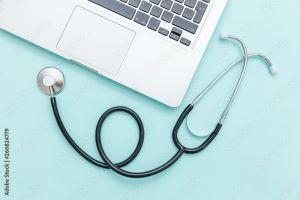
Furthermore health care professionals main objective has always been to make society a healthier unit. Now that technology and media are introduced to this world, can some lines be blurred as for what is the most efficient and sufficient way to handle certain scenarios, and to gather information? The problem that arises is the question as to whether or not media gives society the proper medical attention needed, or even accurate information. For example, we are in a time now where almost everyone turns to the internet to google their symptoms and causes for what they are enduring at the moment. If you happen to do a google search using keywords to describe your symptom and the results from the internet sources may tell you that you have cancer, when in reality it could just be a common cold. This is a common misconception that media can give society. False treatment is the risk we, as a whole take when intertwining the media with medicine. Although it can be a brilliant outlet to use, there are always drawbacks. Statistics have shown how popular this can be. “A large survey found that more than one-third of Americans self-diagnose when they encounter a health problem, and another study indicated that about 70% of American adults consult the internet for a variety of medical information(Hochberg 2020).” It is very prevalent that this is a commonly used avenue when it comes to the population within the medical world.
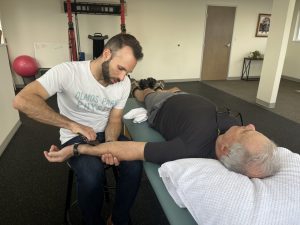
Because there is such a high demand for the media when it comes to medical advice, we can now acknowledge the fact that it is reliable to a certain extent. I have been interning with a doctor over the past couple months and decided to bring this controversial topic to the table. Dr. William Gonzaba, a Certified Physical Therapist states that, “Overall I think that COVID brought to light a lot of negatives about media’s effects on medical decisions. It showed how politics can affect media’s decisions. Outside of that, there is a lot of great information and tools to be used on the internet, as well as a common mistake of misinformation.” Gonzaba noted that media in the medical world can often be useful but more often than not should be taken with a grain of salt, if it is not coming from a licensed professional or an acclaimed resource. We can now determine that media should hold a secondary position to doctors when it comes to medicine.
Overall this problem cannot merely be solved because as a society we allowed internet sources to state whatever they wish, when it comes to health related information. Sources can offer helpful tips and advice, however media will always be present, and advancing and the sources need to keep the content current and available. Although there is some advantages to the use of media, I am afraid the negatives out way the good in most medical scenarios. The question we have to ask ourselves is are we okay with putting the fate of our health into a hands of content creators and search engines serving up the content.
References
Carlo, Andrew D, Brian S Barnett, Utibe R Essien, and Sandro Galea. “Redefining Medicine’s Relationship With the Media in the Era of COVID-19.” American Journal of Preventive Medicine 60, no. 1 (January 2021): 142–45. doi:10.1016/j.amepre.2020.08.016
Hochberg, Irit, et al. “Assessment of the Frequency of Online Searches for Symptoms before Diagnosis: Analysis of Archival Data.” Journal of Medical Internet Research, JMIR Publications, 6 Mar. 2020, https://www.ncbi.nlm.nih.gov/pmc/articles/PMC7084283/.
Ventola, C Lee. “Social Media and Health Care Professionals: Benefits, Risks, and Best Practices.” P & T : a Peer-Reviewed Journal for Formulary Management, MediMedia USA, Inc., July 2014, https://www.ncbi.nlm.nih.gov/pmc/articles/PMC4103576/.
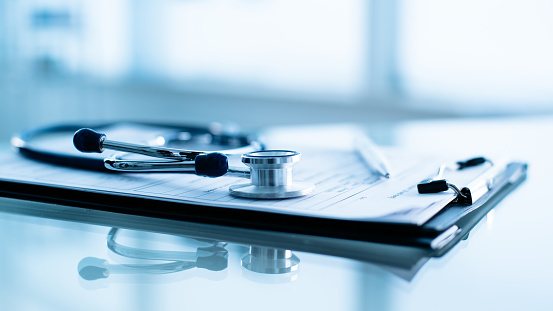

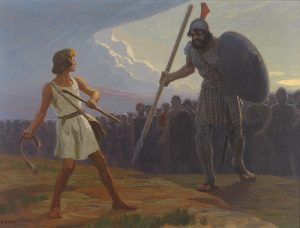
29 comments
Quianna Wynn
Due to that fact that the internet and the media are more significant in our everyday lives, we can awknowledge the fact that, we can use the media for medical advice, because its “right at our finger tips”. Although everything may not be reliable its important to recognize websites such as the “Mayo clinic” that we can trust.
Jackie Velasquez
This article was very interesting to read. Media can be very helpful to the medical field as far as communicating and such, but there are people who just google their symptoms and self diagnose themselves when in reality, it can be something completely different. I am guilty of this, I have googled why I feel the way I do and have gotten results that are not so accurate. People think that since google is there, that it can solve anything however there are reasons why there are experts in certain fields and google cannot compare to them.
Dylan Damian
This article was a really nice read due to how informative it was and I found myself agreeing to some of the points made throughout. A point I would like to bring to light that I agreed with is the negative affects the media has had on medical decisions. I agree with this because yo cant trust everything yo read online especially when it comes to medical advice. Overall though nice read.
Jordan Davenport
A very informative article which is a good read especially in current times. I really like how the pros and cons was explained, on how through advancements of technology has helped health care tremendously, such as how the first digital medical record system was created back in 1972, which has made it easier for people to keep all of their medical history in one place and how it helps healthcare officials, by allowing the use of computers to retrieve files on a patient instead of digging through tons of papers and how information on healthcare can be shared to anyone in the world seamlessly. But also the negative side of the coin, is the possibility of misinformation being out in the public about health conditions. How there can be false information that some might believe is true in regards to diseases or other health problems.
Christian Guerrero
Hello,
Congratulations on your nominations! This paper was really interesting as it is a way to apply ethical thinking on the fact that medical record can be accessed without consent. I wonder if there any consensual laws on our medical records being released through certain media usages. This is the same issue as the foundation of the Human Genome Project was based on nonconsensual sampling.
Madeline Chandler
This was an extremely well-written article, and it was so detailed. It was so interesting because this is a topic that is so relevant to the current times. This article truly displays the positive attributes of having the media and Health Care Providers relationship. It allows information to spread and awareness to be brought to the major population. On the flip side, this article does articulate the negative side effects of media and Health Care Providers being intertwined, this can cause fear and misinformation to be spread. This article is useful for today’s climate.
Mauricio Rebaza Figueroa
Hi, Makenzie. This is a very good article. I think it is really important for everybody to learn more about how powerful can media be on the health on a lot of people. You did a good job on the explanation of all your points. You also used a lot of good images that helped me reading your article and different sources that made it trustworthy. Overall, you did a really good job.
Grace Malacara
This is a fascinating subject, and it has undoubtedly been a hot topic in recent years. The ease of access to information on the internet is appealing, and I believe that most people do not consider where the information is coming from, whether the site is reliable or even legitimate. The media frequently paints a picture that is not entirely accurate. This essay was a quick read that nonetheless offered valuable information. Congratulations on your nomination!
Jesslyn Schumann
Congratulations on your nomination! The media has become such a big part of our lives and has impacted both negatively and positively. But to see it from a medical stand point is new for me. Yes, it does allow for better communication but it also can bring false self diagnosis’s. It really showed me how todays technology can be so impactful! Thank you for a great read and good luck at the ceremony!
Chris Ricondo
Congratulations on your nomination and the quality of your article. This was a very educational post that discusses the benefits and drawbacks of the media in the field of medicine in a plain manner. I like how you started this post by discussing how medicine used to be and how it evolved into what it is today.